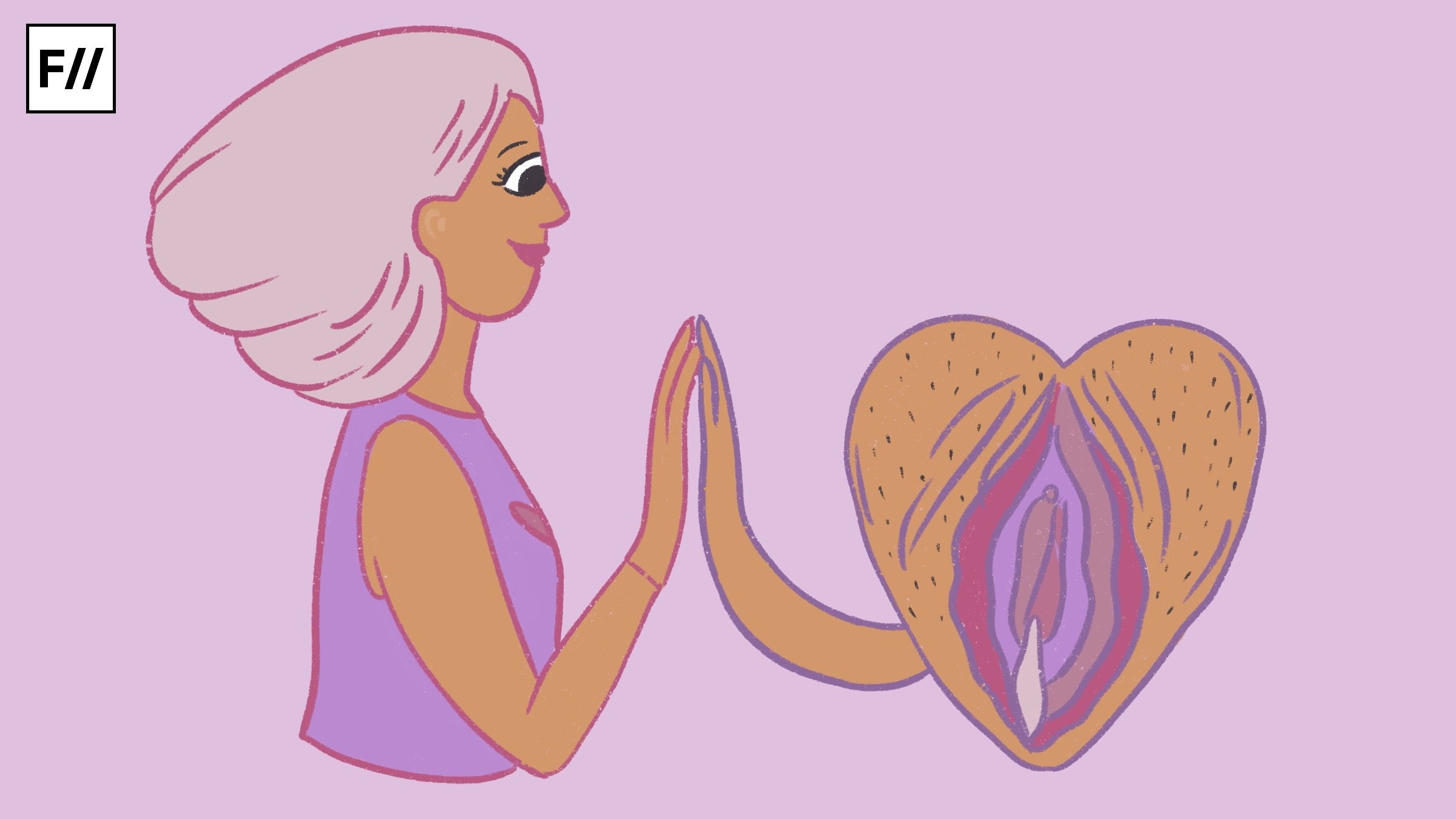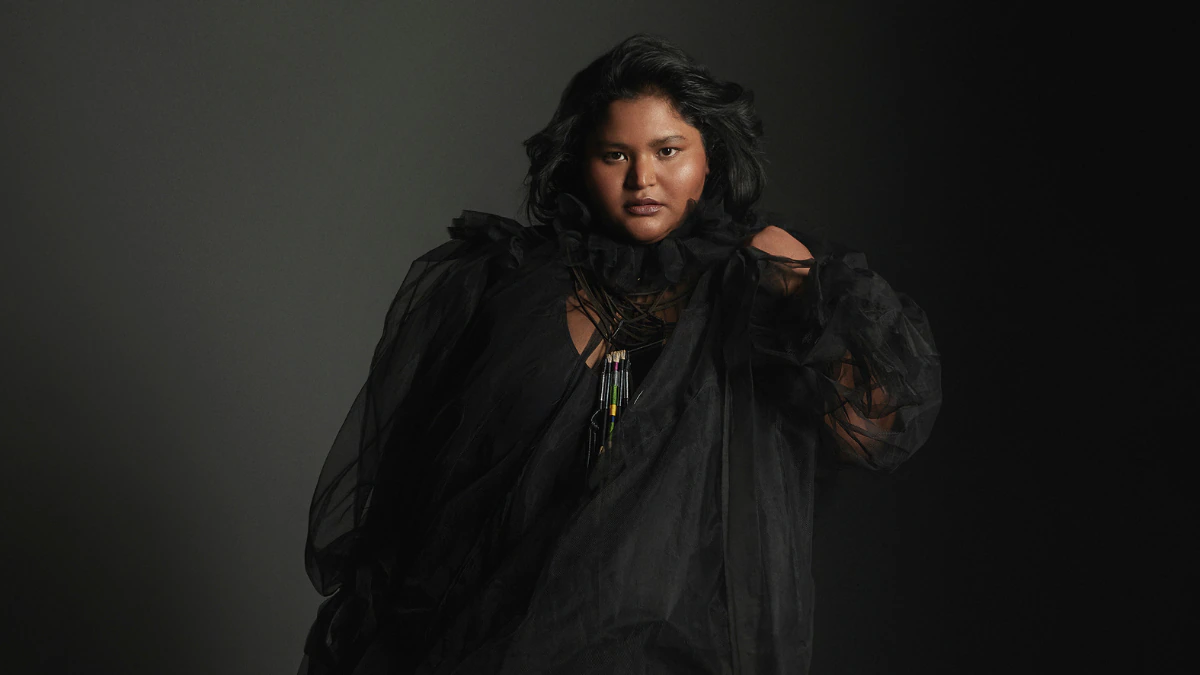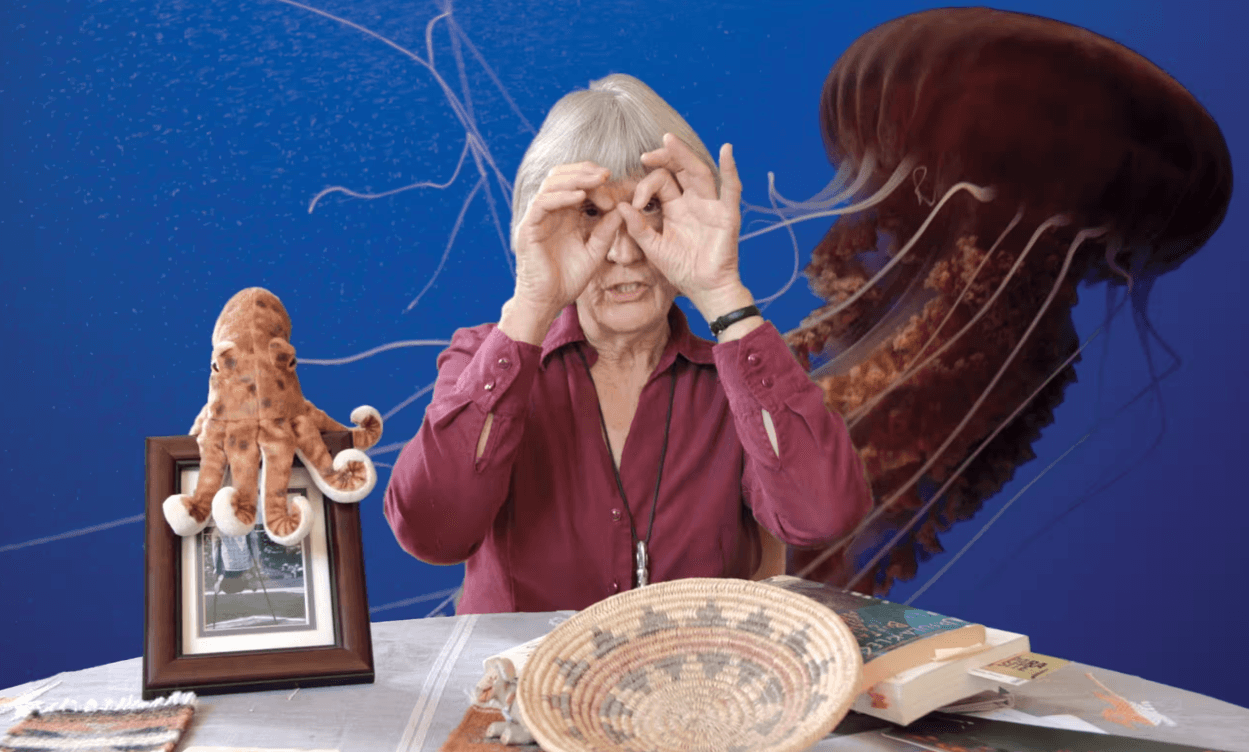“It’s scary saying the word: ‘Vagina.’ At first it feels like you’re crashing through an invisible wall. ‘Vagina.’ You feel guilty and wrong, as if someone’s going to strike you down. Then, after you say the word the hundredth time or the thousandth time, it occurs to you that it’s your word, your body, your most essential place.” — Eve Ensler, The Vagina Monologues.
From learning nicknames for our genitalia to referring “down there” during menstruation, growing up, discussing vaginas was always hush-hush. It’s tough to talk about vaginas. Perhaps, the reason people have very little knowledge about them. And even if they do, it is either based on the Euro-centric depiction of how the vulva looks like or from the awkward brief lesson on reproduction from the eighth grade. I think our deliberate ignorance of vaginas comes from the shame that is attached to it. It starts early, when we are debarred from knowing the anatomy of our body as children and are suddenly slapped with restrictions once we start menstruating. We start associating vaginas with fear and guilt, as a threat to our freedom and eventually forget that it exists.
I think our deliberate ignorance of vaginas comes from the shame that is attached to it. It starts early, when we are debarred from knowing the anatomy of our body as children and are suddenly slapped with restrictions once we start menstruating.
23-year-old P, who wants to stay anonymous, says “I feel detached from my body. I feel uncomfortable saying the word ‘vagina’ or even thinking that it is a part of my body.” P believes this detachment is due to the lack of appropriate conversations about our bodies as teenagers or the fear of being judged for engaging in discussions about our vagina among other things. “I wish someone had told me ‘positive’ things about my body as a teenager”, sighs P.
Also read: Dear People, Here’s Why You Need To Leave Your Vaginas Alone
The shame attached to female genitalia is associated with controlling female sexuality and the way reproduction is conventionally perceived. The latter ensures that our vaginas are protected in the name of honour and chastity. Women are reduced to objects of exchange to continue family lines and their vaginas to instruments for childbirth and to pleasure men. Perhaps, as a result the conversations about vaginas are constrained to a certain group and for a certain purpose, thus completely subtracting dialogues on desire, pleasure, and sexuality among married women. In cases where if women show even the slightest of interest in sex, or on pleasuring themselves, they are slut shamed and looked down upon. While pre-marital sex in India is still a taboo, the possibility of unmarried women and young girls to discuss about the changes that their bodies go through and ask questions on sex and sexuality remains impossible. Hence, it leaves no room for conversations on sexual abuse, marital rape or relationship abuse and rape among other things.
S, talks about the lack of awareness on relationship abuse and how she didn’t realise she was in an abusive relationship until the break up. “My ex-boyfriend would persuade me to go down on him and get upset if I didn’t show interest. He would get very aggressive in bed and won’t listen to me when I would ask him to stop.” S says “I couldn’t share it with anyone because I didn’t know it was rape for the longest time myself. I kept blaming myself and had started hating my vagina. It felt dirty and cringy.” She also stresses on the importance of sex education for teenagers and expects schools and colleges to give lessons on consent.
Teenagers, as they hit puberty go through a lot of psychological and emotional development along with growth of sexual reproductive organs. Considering the complex emotional state women are in during puberty, addressing questions on sexual health becomes important. In the Indian context while there does exist a curriculum for sex education in schools, realities on the ground are completely different. Numerous cases of teen pregnancy, STDs, moral policing, unsafe abortions, sexual violence, and suicides are reported in the country. In addition, the taboo associated with sex and the burden of “sanskar” closes doors for conversations with parents in the domestic sphere.
A, who chose to stay anonymous, talks about the first time she noticed tiny stands of hair on her groin area and how it freaked her out. She also recalls how she learnt about periods in the sixth grade from a friend who had recently got her periods. “She tried explaining me what periods were but none of that made sense to me. I was scared and anxious. I also started feeling different about my body. I was terrified thinking that it’ll be painful when I start bleeding,” said A.
The lack of awareness on sexual health and cultural taboos around female masturbation has deprived women of the pleasure of self-love. So many women can’t locate their clitoris, many don’t know if it even exists. In cases where they do, they are subject to character assassination. In fact, several communities in India continue to practice Female Genital Cutting (FGM) where the clitoris is considered sinful and is cut off from the body when girls are young in the name of culture, as a measure to control the sexual and reproductive agency of the women.
When it comes to sex, according to the Global Sex Survey conducted by Durex in 2017, nearly 70% women in India don’t orgasm every time they have sex.
How are we supposed to orgasm if no one knows how our vaginas look like in the first place?
Ironically, vaginas are either sexualised or placed as sanctums of purity. They are either associated with shame or considered non-existent. Everyone has so much to say about our vaginas and so much to dictate that the authority over our bodies seldom remain with us.

Women are constantly made to feel that their bodies aren’t theirs, that their truths aren’t true, that they must be saved and protected, that they can’t escape the curse that their vaginas are.
I have never heard anyone say it aloud in discussions. There’s always an underlying hesitation, mumbling and whispering into each other’s ears, timid hand gestures, alternate names, funny baby talk alteration, calling it everything else but what it is: a vagina.
I also love how conversations about vaginas have led me into building beautiful friendships with women across the world. Conversations blurring boundaries between past traumas to incidents of sexual assaults and rape, fading into stories of domestic violence to abusive relationships, one after another, never ending stories building solidarities and sisterhood.
However, surprisingly every time I have mustered the courage to start conversations about my vagina, women have excitedly come up with theirs. I love the way our eyes lit up when we talk about vaginas, of the time we were too scared to see what’s down there and frantically touched it, the night we found our clitoris, of childbirths and sex and of pleasure and when we felt like we owned our body. I also love how conversations about vaginas have led me into building beautiful friendships with women across the world. It has surfaced stories of hurt little vaginas, of times it felt scared and dirty and was drifting away. Conversations blurring boundaries between past traumas to incidents of sexual assaults and rape, fading into stories of domestic violence to abusive relationships, one after another, never ending stories building solidarities and sisterhood. I say conversations are beautiful, especially about vaginas.
Also read: Please Mind The Orgasm Gap: Inspecting Unchecked Patriarchy In Porn
References
- The Vagina Monologues by Eve Ensler
- Gendering Caste by Uma Chakrabarty
Featured Image Source: Shreya Tingal/Feminism In India
About the author(s)
Sivangi is a graduate in History from Ramjas College, University of Delhi. She is currently pursuing her Master’s in Women’s Studies from RCWS, SNDT Women’s University, Mumbai. She is passionate about pop culture, climate change, intersectionality, gender-based violence, sexuality and other contemporary issues.




